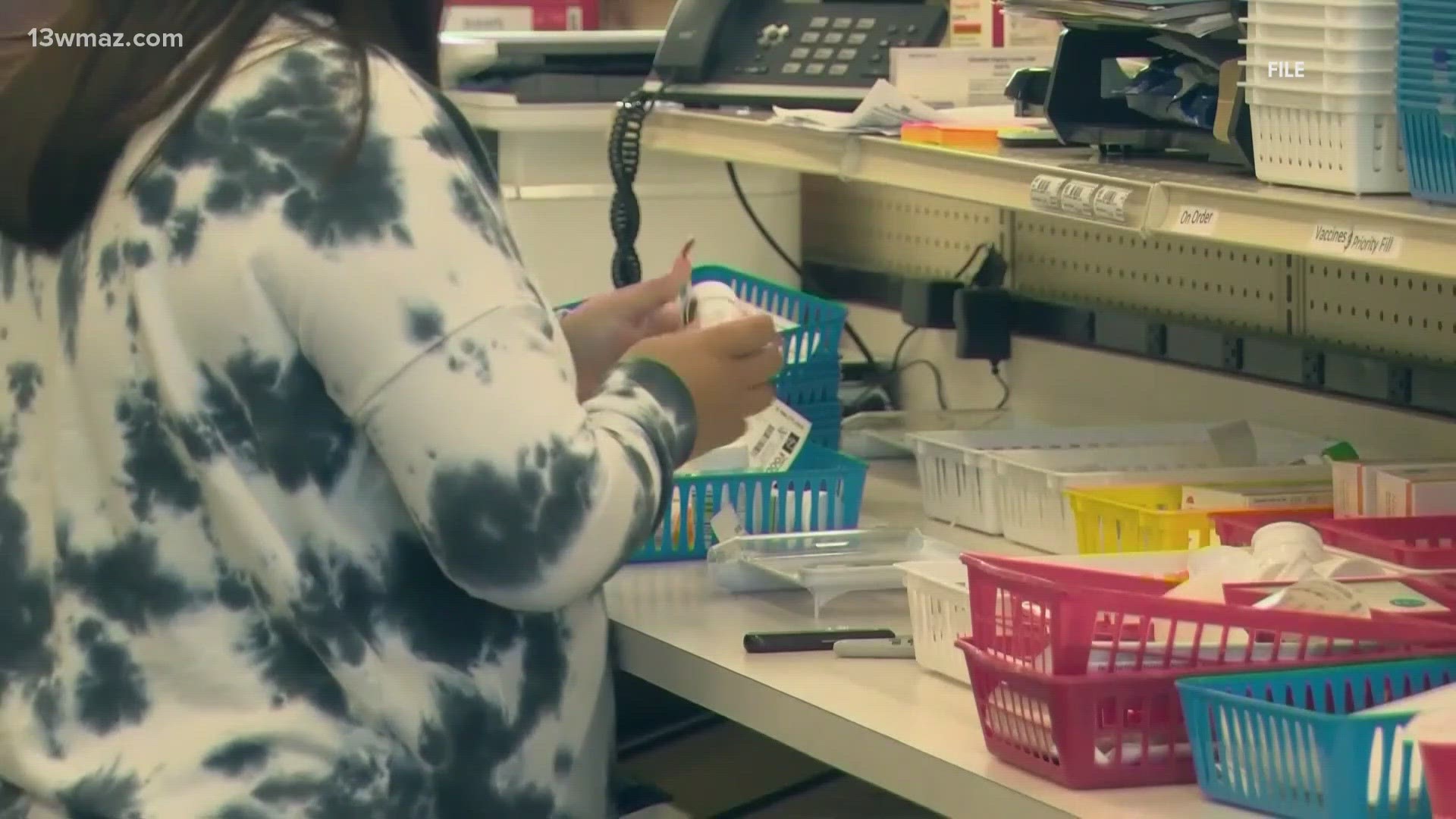MACON, Ga. — Wanda Hill has three kids going back to school, but she's worried about the number of COVID-19 cases in the area.
"I'm telling my kids to stay safe, keep their hands washed periodically because there's a lot of germs out here you don't see," Hill said.
She said her children are going back to school wearing face masks to shield them from a possible COVID-19 infection.
According to the Georgia Department of Health, Bibb County had 115 cases in the past two weeks. At the beginning of August, that number was 67.
Houston County has had 231 cases in the past two weeks, which was higher than the number of cases at the beginning of the summer.
Even with the gradual increase, those numbers are nowhere near as high as the COVID-19 cases two and three years ago.
Dr. Jennifer Hoffman is an infectious diseases specialist at Piedmont Macon Medical Center. She said back to school season and moving towards winter could mean more COVID-19.
"I would not be surprised if we have a rise in case numbers and [a] continued rise in hospitalizations," Hoffman said.
She said while many people have forgotten about the pandemic, that doesn't mean it's disappeared.
Still, she said the slight rise in COVID-19 numbers is nothing to stress over.
"We don't need to be panicked, not right now," Hoffman said.
Even if a surge in COVID-19 happens this year, it most likely won't be like previous years during the pandemic, she said.
"There's some degree of population immunity in the sense that most people have been vaccinated or have already had COVID. So we at least have a little bit or residual immunity," she said.
Another COVID-19 booster that protects against the main strain of the virus will also be available this September or October.
Dr. Hoffman said people who are in vulnerable populations, like those over the age of 65, and those with immunocompromised conditions, should keep an eye on the numbers.
If the numbers continue to rise significantly in their area, she recommends taking more cautious steps like masking and avoiding highly populated areas.
She also recommends anyone who is in a vulnerable population that catches COVID, to speak to their doctor within the first five days about the drug, Paxlovid.
For Hill, she's not going to put her family's life on hold because of the increased COVID-19 numbers. But she said she will keep reminding herself that COVID-19 hasn't magically gone away.
"Living life as normal, and still staying cautious at the same time," Hill said.
You can see the number of COVID-19 cases in your county at this link.

